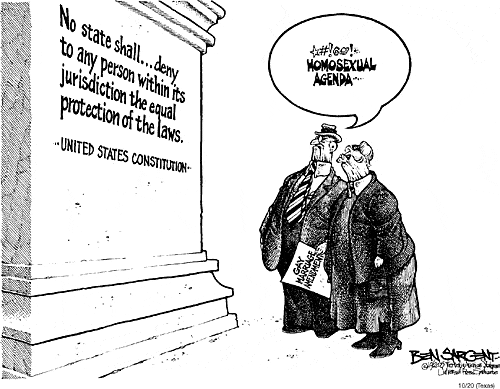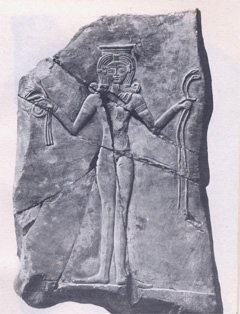Questions and Biblical Answers
from a gay Christian
We love good questions but because we have a life away from this website, we limit questions to those we feel will most benefit our readers. We don't profess to know all of the answers but after years of study, we do have some answers which are helpful to growing Christians. Click on the topics below to see our answers.
 |
Evidence Tape
Questions?
We have answers!
"But sanctify the Lord God in your hearts: and be ready always to give an answer to every man that asketh you a reason of the hope that is in you with meekness and fear." - 1 Peter 3:15
Interesting answers
to interesting questions
If God wanted us to know gay sex is wrong,
how would He say so in the Bible?
Doesn't Leviticus say homosexuality is wrong?
Does Leviticus say it's okay to kill gays?
Are Christians required to keep Sabbath?
Return to GayChristian101 Home Page
 |
The "homosexual agenda"
 |
1. If God wanted us to understand that all gay sex is wrong, how would He have said so in the Bible?
That is such an excellent question! God could have made a clear unequivocal universal prohibition against gay sex and gay relationships yet God never did that in the Bible. Isn't that interesting?
Instead, the OT prohibitions are narrowly focused on Israel, Jews living under the Law, in the land of Palestine, between 1491 BC, when Israel conquered Canaan and AD 30, when Jesus died on the Cross and resurrected.
A leading Jewish scholar, Jacob Milgrom, wrote a 3000 page commentary on Leviticus for the Anchor Bible Commentary Series. Regarding Lev 18:22 and 20:13, Dr. Milgrom concludes that the prohibition of male-male sex is aimed at Israel while they lived in the Holy Land.
The prohibition was primarily to encourage Jewish men to procreate to increase Israel's population, according to Milgrom, so that they could fulfill God's promise that they would be as numberless as the dust of the earth, the sand of the seashore and the stars of heaven. Questions.
God placed the prohibition for Jewish males in Lev 18:22, right after Lev 18:21 Female homosexuality is never mentioned in the Old Testament and many Bible scholars believe lesbian sexuality is never mentioned in the New Testament.
Lev 18:21 helps to set the context - worship of Molech (and by extension, his fertility goddess consort, Ashtoreth). In the ancient near east, cult prostitution or shrine prostitution was widely practiced by pagan nations.
 |
Ashtoreth or Hathor,
the Canaanite fertility goddess, circa 1250 BC
A female prostituted herself (anal sex with male worshipers of the fertility goddess) and men, some of them castrated, also prostituted themselves (anal sex with male worshipers of the fertility goddess) in honor of Ashtoreth, Molech's fertility goddess consort. The idea was that the sexual act was an offering of male reproductive capability to the fertility goddess. I'm sure that raises questions.
This is discussed in Unger's Bible Dictionary, the Interpreter's Dictionary of the Bible, the NIV Study Bible, the Companion Bible, the Jewish Encyclopedia and many other authoritative sources. One can Google shrine prostitutes and find lots of information on the Net.
When Paul writes Romans 1:26-27, he describes the same thing, shrine prostitution as practiced by Gentiles and Jews. Paul carefully sets his remarks about sexual sin in the context of idolatry and the shrine prostitution which accompanied idolatry.
In the only Christian sermon we are told that Paul heard before he got saved, Stephen's sermon in Acts 7, Stephen mentioned Molech worship as one of the sins of Israel. Molech worship is a catchphrase in scripture which includes Ashtoreth worship and shrine prostitution. No serious scholar questions that truth.
Every first century Jew and most Gentiles would have understood precisely what Paul was talking about in Romans 1:26-27 and 1 Corinthians 6:9 and 1 Timothy 1:10 because first century Rome had 400 pagan temples, some of which practiced the illicit sexuality of shrine prostitution. Affiliated pagan temples doted the Roman empire, especially Corinth and the other cities where Paul ministered.
In the first century, there were common Greek words denoting men who had sex with men. Paul and the other human authors of the New Testament did not use any of these common Greek words to describe homosexuality.
 |
The word of God is clear.
Homosexual partnerships which are within the Biblical moral framework and gay marriages, committed faithful non-cultic, are not condemned in the Bible. If God intended us to understand that all homosexual practice was universally prohibited, He would have caused Paul to use one or some of the Greek words commonly available in the first century AD to describe male same sex activity. This would have made it unmistakably clear and we would have fewer questions.
Instead of using any of those commonly available Greek words, Paul coined a new word, arsenokoites and used another word, malakoi, both of which are also used to describe heterosexual men who have illicit sex with women.
Neither arsenokoites or malakos was ever used as an exclusive reference to homosexuals. In fact, arsenokoites and malakos are rarely, if ever, used to describe homosexuals.
Arseno is the Greek word for man and koites is the Greek word for bed, used euphemistically to indicate having sex, the same way we say 'he slept with her' when we don't really mean sleep, we mean having sex.
A word does not always equal
the sum of its parts.
The word ladykiller might mean precisely that if applied to serial killer Ted Bundy but if applied to a movie star like Brad Pitt, ladykiller would have nothing to do with actually killing a lady. The meaning of ladykiller, depending on context, is entirely different than the literal meaning of its parts (lady & killer).
Just so, interpreting arsenokoites, male bed, to mean homosexual, is not linguistically accurate. Questions.
A good rule of thumb when we interpret scripture is:
Scripture cannot mean NOW
what it did not mean THEN.
Think about it. If the word arsenokoites did not mean homosexual when Paul wrote it in the first century, then it does not mean homosexual now. The meaning has not morphed over time to mean something different than it meant when Moses used it in 1450 BC. It did not suddenly change its meaning in the twentieth or twenty first century.
 |
Arsenokoites was only used 77 times in Greek literature, between the time Paul first coined the word in I Cor 6:9 and the end of the seventh century. Sometimes it referred to rape, as in the story of the Greek god Zeus, raping Ganymeade. Sometimes it refers to a heterosexual who has an excessive desire for sex with women. Sometimes it is said to refer to slave traders who kidnap young boys to abuse them sexually.
The Greek word arsenokoites
is NEVER used historically,
to refer to a committed,
faithful, non-cultic relationship
between two men.
If there is a reference in the Bible or in ancient Greek literature where arsenokoites is used that way, someone please produce it.
The word homosexual cannot be found in an American dictionary until about 1901. The concept of an exclusive, committed homosexual or lesbian relationship was not widespread in Old Testament or New Testament times.
It may surprise some readers to learn that common old heterosexuality was not considered normal as late as 1931. Gould's Medical Dictionary, P. Blakiston's Son & Co, 1931, defined heterosexuality as: "Perverted sexual feelings toward one of the opposite sex."
If you grew up believing that heterosexuality has always been considered normal and homosexuality has never been considered normal, your beliefs do not fit historical facts.
The possibility of exclusive same sex relationships was discussed by Greek philosophers hundreds of years before the New Testament was written but an exclusive emotional romantic sexual partnership or marriage between two men of equal status or two women of equal status was not something with which most of ANE (ancient near east) culture was familiar. Questions.
The Greeks and many other cultures of the ancient near east, believed men experienced polyvalent sexuality, that is, a man could be attracted to a beautiful woman and/or to a beautiful man. As long as cultural norms were not violated (such as adultery or rape or a same sex sexual relationship between males of equal status), attractions to either or both sexes were viewed as normal.
That fact alone doesn't necessarily make it right but it does explain that their views and our views about sexuality are largely cultural, with little basis in what scripture actually says. Yet far too many Christians seek to impose their personal cultural views on the rest of us, using the power of government to enforce their bigotry.
There are 613 laws, rules and regulations in Jewish scripture. Most of those 613 laws are not applicable to Christians today. The ones that are applicable were in effect before God gave the Law to Moses in Exodus 20. Some examples - Murder was wrong before law (Gen 9:6), during law (Ex 20:13), and after law (Matt 19:18). Adultery was wrong before law (Gen 20:1-12), during law (Ex 20:14), and after law (Matt 5:27-28). Questions.
The Law of Moses was clear, that an Israelite or a resident alien in the land of Israel, while the Law was in effect, 1491 BC to AD 30, was to be stoned if he violated Lev 20:13 (where the context is Molech worship, not gays or lesbians, and the associated shrine prostitution to Ashtoreth which was connected to Molech worship, Lev 20:2-5).
The homosexuals I know do not worship Molech or Ashtoreth. Many of the homosexuals and lesbians I know are saved born-again Bible believing Christians like me. Questions
More Questions and Answers
A gay preacher gives serious answers
to 20 serious questions.
Jesus talked about loving strangers
From Questions, Return to
GayChristian101 Home Page
Google Translate
into 90 languages
We are saved:
by grace alone through faith alone
Recent Articles
-
Gay Christian 101 - Affirming God's glorious good news for all LGBs.
Jan 08, 24 12:57 AM
Gay Lesbian Bisexual Christian 101 - Accurate biblical and historical info defending LGB Christians from the anti-gay crowd. -
Romans 1 describes ancient shrine prostitution, not gays and lesbians.
Dec 21, 23 04:37 PM
Romans 1, in historical context, is about ancient Roman fertility goddess worshipers who engaged in shrine prostitution to worship Cybele, not gays and lesbians. -
The Centurion And Pais - When Jesus Blessed A Gay Couple.
Nov 14, 23 10:32 PM
Centurion and Pais? If Jesus blessed a gay relationship, would this change your view of homosexuality?
Bible Study Resources
for eDisciples



